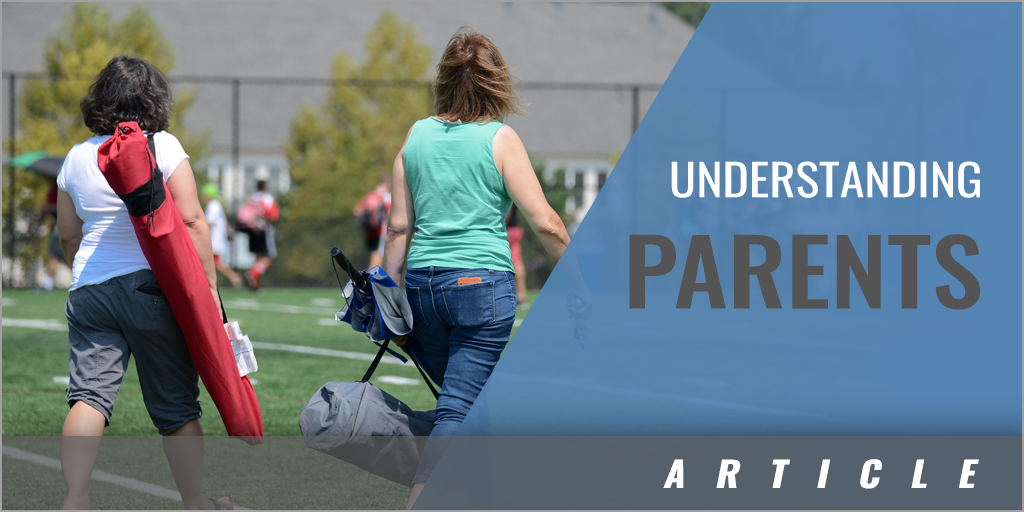|
By: John Klessinger Originally Published in: A Coach's Manual Provided by: Championship Productions "Keep the discussion with your athlete and parents alive, but never forget that you are the coach, and you have your own philosophy on how to get results." - Timo Mustikkamaa, 2005 Paralympic World Silver Medalist Here is the good news - most of your parents will support you if you are consistent in dealing with their children and have a positive experience. The majority of your parents will be helpful and cooperative. Quite a few will express appreciation and gratitude, validating the many hours you've spent to help their children. It is always nice to hear kind words from parents. I would guess that all coaches begin coaching under the premise to make a difference and help kids. Coaching gives someone the ability to impact so many people. A teacher or coach will often impact more kids in a year than most people will in a lifetime. On the surface, it is rewarding and noble. Until... The bad news - regardless of what you do, you will not make everyone happy. That is the reality of coaching. That is also the reality of everyone in life. Not everybody will like you. Approximately 90% of your parents will like you, but 10% will dislike you no matter what you do. Ironically, you will spend 90% of your time dealing with the 10% who do not like you. It isn't easy to not take it personally because you feel that you are trying your best. The bottom line is parents love their kids and see things differently than you. Their love for their children blinds their view of their child's talent, work ethic, skills, and ability. When their child is not successful, a parent has difficulty seeing that maybe their child is at fault for their lack of success. It wasn't until my wife and I had kids, and they began playing sports, that I understood how a parent could be so irrational and uncompromising. I get it now from watching my own kids struggle. It hurts to watch your child not be happy or successful. Parents only want to see their kids do well and enjoy the sport. To them, a lack of success equals unhappiness. As a result, it is someone's fault if their child is unhappy. Intellectually, a parent knows that it is inevitable that their child will fail and struggle. Emotionally, it is a tough pill to swallow. Sometimes, it takes a lot of effort for parents to hold their tongue and be rational with this in mind. Being on both sides of the fence, I can see how it happens! It still bothers me some days, but I have to continually remind myself that the disagreeable parent only loves their child. The only solution when a parent is angry and upset is to have a face to face meeting. A meeting gives them and you an opportunity to air grievances and devise solutions. From experience, talking in person has been the best way to alleviate issues. Email or text messages seldom solve issues with angry parents. Words can be misconstrued and misinterpreted. A face to face conversation will best remediate confusion and miscommunication. At a minimum, a phone call is more effective when dealing with an unhappy parent or player than an email. Please take my word for it; email correspondence usually leads to more and more emails putting both you and the parent on the defensive. Email and Text Messages: Dear Parent, It is a challenge not to defend your position and justify your coaching decisions in an email. Often, I have to walk away from the computer or phone and take a break from the conversation to clear my head. I may need to vent to my athletic director or a coworker before responding. Emails and text can hurt. They can be a punch to the stomach and leave you angry and disgusted. Unfortunately, email and texts are quick, easy, and less confrontational, becoming the preferred communication method between parents and coaches. Society has allowed this type of communication to substitute for real correspondence, enabling people to be less respectful and unprofessional when dealing with sensitive issues. More than once, I "fired back" with a justified response, resulting in little, if any, resolution. I learned the hard way to end emails and request a meeting to resolve an issue. Almost every time since then, the level of anger and emotion was less in a meeting than an email. Face to face communication requires us to step back and be more selective and less confrontational in our dialogue. In over 20 years of teaching and coaching high school students, I have worked with thousands of students and parents. Approximately 90% of the parents have been cooperative and supportive. By percentage, only a few dozen parents have been a challenge. Most likely, those numbers are even less. I recall only four extreme situations with a parent that were arduous on me and/or my coaching staff, athletic director, and administration. The overwhelming majority of parents will be a pleasure to work with, and you will build many long-lasting relationships with them. Key Takeaways: 1. Parents love their children. Please do your best not to take it personally. It should provide you with some perspective the next time a parent is angry or upset. However, it is not a justification for inappropriate comments or behavior. 2. Make it a policy only to communicate information through email and text messages. Information specifically means practice and event times, schedule changes, and other types of program happenings. All other forms of communication, not knowledge-based, should be dealt with via telephone or face to face meetings. 3. The vast majority of parents will support you and your program's policies and mission. 4. You will not make everyone see your side regardless of what you say or do. Expect there to be opposition once in a while. It is common for any coach who has ever worked with high school athletes. |







